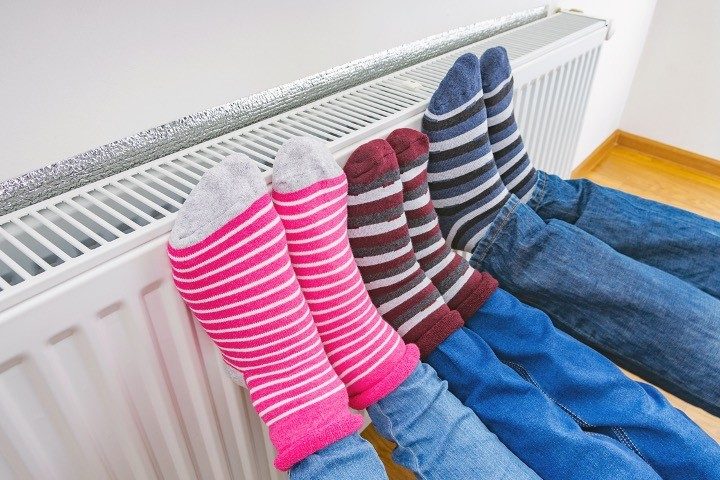
Sometime in 2022, due to climate hysteria — along with the Ukraine war, which largely stopped supplies of Russian natural gas to Germany — that nation’s government wrote draft legislation designed to outlaw new fossil fuel powered heating systems beginning in 2024. When that legislation was leaked to the German public courtesy of an unknown source, it caused a crack in the left-wing coalition government.
Vice chancellor and economy and climate minister Robert Habeck, a Green Party member, called the coming ban “urgent” and claimed that Germany needed to “catch up in a short time” in their bid to meet climate goals.
Formerly, the target to begin to move away from fossil-fuel powered heaters — not ban them — had been 2025.
Proponents say the switch to so-called renewable technologies is needed in order to meet the arbitrary net-zero timelines, but insisting on a ban on new fossil fuel heaters has spurred tensions in the German government’s ruling coalition between the country’s Green Party, the Free Democratic Party (FDP), and the Social Democratic Party (SPD).
“The draft was leaked to Bild, in what I suppose to be a deliberate manner, in order to damage the trust within the government,” Habeck said. “This was probably done deliberately, in order to obtain a cheap tactical advantage…. That’s why I’m a bit alarmed whether there is any will to reach an agreement at all.”
But FDP leader and Finance Minister Christian Lindner appeared to be more upset that the draft legislation had reached such a point without discussion on the issue than whether it was leaked. Lindner claimed that the new ban would have “disastrous” economic and social impacts.
“The plans must go back to the drawing board and be fundamentally revised,” Lindner said. “Climate neutrality must not and will not become a social problem.”
The vice chair of the FDP, Wolfgang Kubick, even compared Habeck to Russia’s Vladimir Putin, saying that the two share a “similar conviction that the state, the leader, the chosen one, knows better than the people what is good for them.” Kubick would later apologize for the remark.
Meanwhile, others pushed for the two sides to find common ground.
“The public quarreling of the last few days, the blaming each other, that is not what we need right now to move the country forward,” said SPD’s Lars Klingbeil. “That is what this coalition will be judged on in the end.”
The dust-up over the fossil fuel ban is obviously casting some doubt upon Germany’s coalition government, which was touted before taking office in 2021 as the “greenest government yet by Time.
It’s not the first time the “greenest government yet” has experienced hiccups in their drive to net zero. Last year, when the Ukraine war was heating up and Russia announced vast cuts to energy exports, the ruling coalition was forced to fire up coal fired plants to meet the resulting energy needs.
“With the law, we are setting up a gas replacement reserve on demand. And I can already say: We will call off the gas replacement reserve as soon as the law comes into force. That means, to be honest, more coal-fired power plants for a transitional period. That’s bitter, but in this situation it’s almost necessary to reduce gas consumption,” Habeck announced at the time.
However, the common sense of that temporary return to coal and other fossil fuels appears to have been replaced with what many believe is a sneaky move by Greens and the SPD to have the new ban in place by 2024. Ironically — or perhaps not — Germany is next scheduled to hold elections in 2025. Were the far-left members of the coalition government attempting to install the new ban ahead of time, so that other parties couldn’t make it a campaign issue?
The initial coalition treaty never mentioned a “ban” on new fossil fuel heating systems. It only stated that “as of 2025, all new heating systems have to run on 65 percent renewable energy.” The new ban appears to be something of a power move initiated by far-left, “climate friendly” members of the government. All that stands in the way of the ban is the FDP, considered center-left in Europe.
Currently, nearly 80 percent of Germany’s heating demands are powered by fossil fuels, most of which is imported from other countries. But Germany’s far-left government seems intent on changing that as soon as possible, even if technology to replace those fossil fuels isn’t available yet.
The German government will meet to discuss the issue on March 27.




